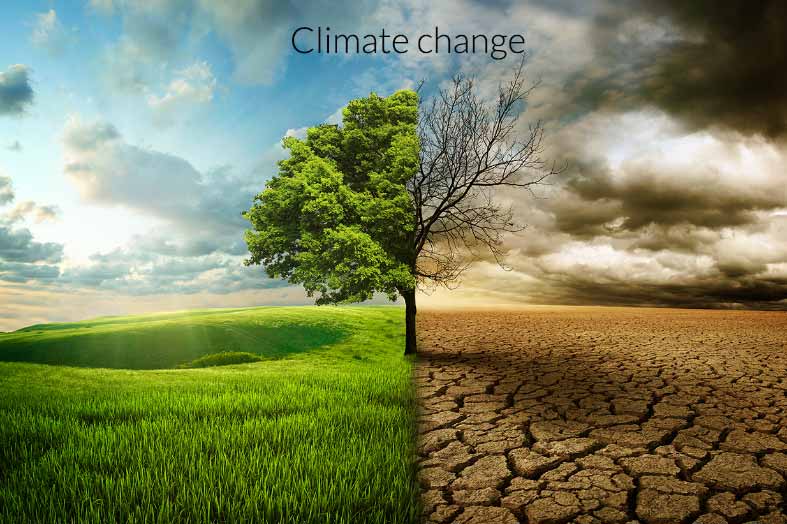
Climate change is one of the most pressing challenges of our time. It is a global issue that affects all living beings on Earth and demands our immediate attention. The term “climate change” refers to the long-term alteration of temperature, weather patterns, and other climatic factors, primarily caused by human activities, including the burning of fossil fuels, deforestation, and industrial processes. This essay explores the gravity of the situation and discusses the essential strategies for navigating the profound changes that climate change is bringing to our world.
To comprehend the climate change challenge, it is imperative to grasp the science behind it. The Earth’s atmosphere contains gases like carbon dioxide, methane, and water vapor that trap heat from the sun, creating the natural greenhouse effect. However, human activities, particularly the burning of fossil fuels, have significantly increased the concentration of greenhouse gases in the atmosphere, leading to enhanced heat retention. This results in a steady rise in global temperatures, leading to a wide range of impacts.
Climate change is already impacting the world, making adaptation crucial. Adaptation efforts include building resilient infrastructure, protecting vulnerable coastal areas from sea-level rise, and developing agricultural practices that are resistant to droughts and extreme weather events. Communities need to be prepared to face the challenges climate change brings while ensuring their long-term sustainability. Climate change is a transnational issue, and thus, global cooperation is vital. The Paris Agreement, signed in 2015, is a testament to international commitment to combat climate change. It seeks to limit global warming to well below 2 degrees Celsius above pre-industrial levels and aims to pursue efforts to limit the temperature increase to 1.5 degrees Celsius. Nations around the world must work together to meet these targets and foster sustainable development.
While governments and international organizations play a significant role, individuals can also contribute to climate action. Reducing one’s carbon footprint through energy conservation, sustainable transportation choices, and environmentally conscious consumption can collectively make a substantial impact. It is the responsibility of every citizen to be mindful of their actions and choices.
Innovation and technological advancement are at the core of climate change mitigation. Scientific breakthroughs in clean energy technologies, carbon capture and storage, and sustainable agricultural practices are essential to the fight against climate change. Governments and businesses should invest in research and development to drive these innovations forward. Government policies and regulations play a crucial role in addressing climate change. Measures such as carbon pricing, emissions standards, and incentives for renewable energy can shape behavior and industries toward sustainability. Policymakers must implement and enforce these regulations to create a favorable environment for climate action.
Raising public awareness and advocating for climate action are potent tools for change. Movements like “Fridays for Future” and the voices of climate activists have catalyzed governments and businesses to take action. The public’s collective call for climate responsibility can influence policy decisions and corporate behaviors.Efforts to combat climate change must be equitable and consider the needs of vulnerable communities. Those who are most affected by climate-related disasters often have the least capacity to adapt. Climate policies should address social and economic inequalities and prioritize resilience in marginalized communities.
Climate change is a long-term challenge that demands long-term thinking. Decision-makers in governments, businesses, and communities must consider the consequences of their actions on future generations. A commitment to sustainability and responsible stewardship of the planet is an ethical and practical imperative. Ongoing scientific research is necessary to understand the evolving impacts of climate change and to develop innovative solutions. Collaboration between scientists, policymakers, and the private sector can lead to more effective strategies for mitigation and adaptation.
Navigating climate change is an undertaking that requires the combined efforts of individuals, communities, governments, businesses, and international organizations. The challenges are complex, but the imperative is clear: to secure a sustainable and resilient future for our planet. Climate change is not just an environmental issue; it is a humanitarian issue that affects every facet of our lives. By understanding the science, implementing mitigation and adaptation strategies, fostering global cooperation, and embracing individual and collective responsibility, we can work toward a more sustainable and equitable world, where future generations can thrive on a stable
